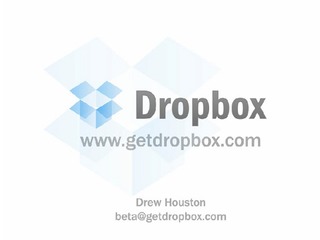When BetterHelp was young: the early years
BetterHelp and Vator have teamed up for Becoming Us, a virtual group therapy program
Read more...Editor's note: Our Splash Health, Wellness and Wearables event is coming up on March 23 in San Francisco. We'll have Mario Schlosser (Founder & CEO of Oscar Health), Brian Singerman (Partner, Founders Fund), Steve Jurvetson (Draper Fisher Jurvetson), J. Craig Venter (Human Longevity), Lynne Chou (Partner, Kleiner Perkins), Michael Dixon (Sequoia Capital), Patrick Chung (Xfund), Check out the full lineup and register for tickets before they jump! If you’re a healthcare startup and you’re interested in being part of our competition, learn more and register here.
Also, vote for your favorite healthcare startup before February 16! Vote here!
—————
As our readers know, Vator has started a series called When they were young.
It's a look back at the modest days of startups, what traction they had in their first few years, and how they evolved. In the end, we hope to provide a glimpse into what great startups looked like in their first three years.
Stories like these are always well received because it reminds us that anyone, regardless of pedigree and environment, can rise above the noise and have great influence. They show us the value of being resilient, persistent, and committed. If we can follow their footsteps, maybe we too can have similar success.
My last segment in this series focused on Medium. This segment is on Oscar.

Screenshot of hioscar.com in July 2013 via Wayback Machine.
— Oscar's First Year —
Founders: Oscar was founded in November 2012 by Mario Schlosser, Kevin Nazemi, and Josh Kushner (aged 27 at the time), founder of New York venture capital firm Thrive Capital.
Initial company description: "A new kind of health insurance company that is using technology to make insurance simple, intuitive, and human. In other words, the kind of healthcare we want for ourselves."
The service distinguished itself from the rest of the market in several ways, with the following taken verbatim from its earliest website:
First funding and traction - at eight months from founding: In July 2013, Oscar raised $40 million from Thrive Capital, Founders Fund, General Catalyst, and Khosla Ventures. Though a large first round, the company said $29 million would be kept in reserve due to state regulations for health insurance providers.
Also this month, Oscar received its New York health insurance license. At the time, the company had 28 employees.
First major hire - at 10 months from founding: In September 2013, Oscar hired Foursquare co-founder Naveen Selvadurai to run the company’s mobile team.
Launch - at 11 months from founding: In October 2013, coinciding with the U.S. government's unveiling of new health insurance exchanges under the Affordable Care Act (ACA), Oscar officially launched. At the time, the company offered four different plans for people with various needs depending on income ranges, family sizes, etc. The screenshot below, courtesy of TechCrunch, shows these different plans:

— Oscar's Second Year —
Second funding and traction - at one year and two months from founding, three months from launch: In January 2014, Oscar raised another $30 million. Founders Fund put in $25 million of the total at a $340 million valuation, while other existing investors contributed the rest.
The new funding—so soon after the last—was spurred on by positive business traction: since its launch in October, Oscar said it had enrolled "thousands" of customers and secured "tens of millions" of dollars in annual revenue. At the time, the company was only serving customers in New York state.
Third funding and traction - at one year and six months from founding, seven months from launch: In May 2014, Oscar raised even more funding in an $80 million round led by Joe Lonsdale of Formation8. Other participants included Jim Breyer (Breyer Capital), Stanley Druckenmiller, and all previous investors. Sources say the new round valued Oscar at $800 million.
Sources also told Forbes that Oscar had secured more than 16,000 customers each paying an average of $4,500 in annual fees, adding up to $72 million in annual revenue for the company.
It's worth noting that the number of customers varied throughout the year due to the unique nature of Oscar's business: individuals could only enroll in the ACA's open period from November 1 through January 31; so throughout the year the company experienced natural attrition.
— Oscar's Third Year —
Pr omotion - at two years and one month from founding, one year and two months from launch: In December 2014, Oscar announced that it would gift all of its subscribers a $50 fitness tracker called the Misfit Flash. Additionally, it said it would reward customers with $1 in Amazon credit for every day they hit their personalized step goals—up to $240 per year.
omotion - at two years and one month from founding, one year and two months from launch: In December 2014, Oscar announced that it would gift all of its subscribers a $50 fitness tracker called the Misfit Flash. Additionally, it said it would reward customers with $1 in Amazon credit for every day they hit their personalized step goals—up to $240 per year.
At the time, in the middle of ACA's enrollment period, Bloomberg reported that Oscar had 17,000 members.
Fourth funding and traction - at two years and five months from founding, one year and six months from launch: In April 2015, Oscar closed $145 million in a funding round led by Peter Thiel and Brian Singerman from Founders Fund. Li Ka-shing of Horizon Ventures, Wellington Management Company, and Goldman Sachs also participated, in addition to all previous investors. The round reportedly valued Oscar at $1.5 billion.
The company had expanded its marketplace from New York to New Jersey, and had grown to roughly 40,000 members.
Traction - at two years and 10 months from founding, one year and 11 months from launch: In September 2015, Bloomberg reported that Oscar lost $37 million in 2014, which the company attributed to expansion costs and new hires. Though Oscar generated $56.9 million in premiums in New York, it spent $66.3 million on doctors, hospitals, and drugs, plus $24.3 million on administrative expenses. The company expected losses to continue in 2015.
Fifth funding - at two years and 10 months from founding, one year and 11 months from launch: Also in September 2015, Oscar secured a $32.5 million investment from Google Capital (now CapitalG). The Wall Street Journal reported that the new funding valued Oscar at $1.75 billion. In addition to the new funds, Oscar co-founder Mario Schlosser said Google could eventually help distribute medical products from its Life Sciences arm to Oscar patients.
At the time, Oscar said it planned to expand from New York and New Jersey to California and Texas for the next Obamacare enrollment period.
— Oscar's Fourth Year —
Traction - at three years from founding, two years and one months from launch: In November 2015, Oscar notified brokers that it was slashing their commission fees. Where they previously earn $14 per contract per month for individual subscribers and up to $26 for families, effective Nov. 6 they would receive only $6 per contract per month irrespective of number of people on the plan.
Oscar had also reported a $41.5 million loss for the first three quarters of 2015, more than doubling losses from the same period in 2014. Losses were due to a tripling in medical expenses to $117.2 million, as well as the company's goal of setting up the business for long term growth. At the same time, Oscar had doubled its revenue to $83.8 million, while number of customers in New York had reached 34,000.
Partnership - at three years and one month from founding, two years and two months from launch: In December 2015, Oscar and ZocDoc (an online service for scheduling medical care) teamed up with the White House to encourage the remaining uninsured Americans to sign up for health coverage. At the time, 10.5 million Americans eligible to sign up had not yet.
Traction and major hire - at three years and two months from founding, two years and three months from launch: In January 2016, Oscar had grown its membership to 125,000 in four states, including Texas and California.
To help manage growth, Oscar made a few major hires. First, Brian West, formerly COO and CFO at Nielsen, was named president and CFO. Second, Joel Klein, formerly New York City schools chancellor and CEO of Amplify, was named chief policy and strategy officer. Finally, Kevin Campbell, formerly head of global delivery at Accenture, was named COO.
Sixth funding and traction - at three years and three months from founding, two years and four months from launch: In February 2016, Oscar secured $400 million in a new funding round led by Fidelity Investments, reportedly valuing the company at $2.7 billion.
The company had grown its enrollment to approximately 145,000 people in a handful of regions across the country: New York, New Jersey, Los Angeles, Dallas, and San Antonio. Oscar CEO Mario Schlosser said he was aiming to have one million customers in five years.
Major hire - at three years and four months from founding, two years and five months from launch: In March 2016, Oscar hired Alan Warren, formerly a VP at Google, as its CTO and SVP of engineering.

— Oscar Today —
Since its launch in 2013, Oscar has raised approximately $727 million in venture capital from over a dozen investors. As of its last fundraising in February 2016, the company is reportedly valued at $2.7 billion.
Losses continued in 2016: in the third quarter of 2016, Oscar lost $45 million in New York, Texas, and California, according to filings with regulators. In order to address what a company spokesperson calls "market instability," Oscar announced in August 2016 that it would be pulling out of the Dallas and New Jersey markets, where it had 7,000 and 26,000 customers, respectively. That said, the company continues to offer off-exchange plans to Dallas members.
As of that August timeframe, Oscar had about 130,000 total members, but we will have an update to that figure soon since the latest enrollment period just concluded. (We'll update this piece when we have the new numbers.)
Oscar has also taken a new approach in New York, where it plans to cut the number of providers available to customers: from 40,000 doctors (in 2016) to 20,000 (in 2017), and the number of facilities from 77 to 31.
In December, Oscar opened its first brick-and-mortar doctor's office in Brooklyn, called the Oscar Center, in partnership with Mount Sinai. Today, Oscar continues to sell individual plans in New York, San Antonio, Los Angeles, and, most recently, San Francisco. The company plans to enter the groups market this year, starting in New York City.
BetterHelp and Vator have teamed up for Becoming Us, a virtual group therapy program
Read more...Ginger started by selling health data to providers, before pivoting to becoming a provider itself
Read more...Talkspace was originally called Talktala, and focused on video group therapy sessions
Read more...


